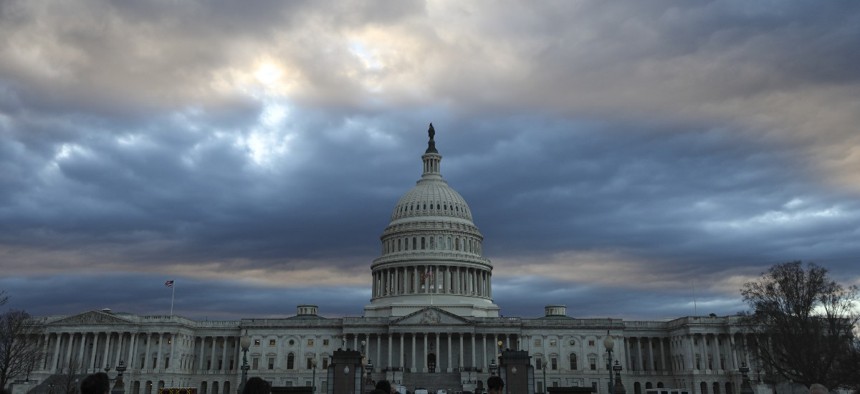Lawmakers Propose a Federal Reserve Corps for Digital Talent

Celal Gunes/Anadolu Agency via Getty Images
The bipartisan legislation seeks to address the government’s tech and cyber needs by enabling industry professionals to bring their skills and experience to the federal level.
A bipartisan pair of House lawmakers active in cyber policy introduced legislation on Wednesday to create a “National Digital Reserve Corps” of civilian personnel who have the skills and experience needed to address a host of digital challenges across the federal government.
The bill—introduced by Reps. Tony Gonzales, R-Texas, and Robin Kelly, D-Ill.—would allow civilian “reservists” to enlist for a three-year period with the federal government and work on a variety of “digital and cybersecurity projects, digital education and training, data triage, acquisition assistance and development of technical solutions.”
Those selected for inclusion in the National Digital Reserve Corps would be assigned to federal agencies by the General Services Administration, and a provision in the legislation would also require that the Labor Department “issue regulations that ensure reservists jobs are waiting for them once they finish their annual service.”
The reservists would work in this governmental role for 30 days per calendar year, while also having the opportunity to “obtain and maintain security clearances, complete certifications, and receive training and education to better equip them to meet the federal government’s cybersecurity and digital needs.”
The goal of the legislation is to help address the current lack of cyber talent at the federal level, as well as across the nation. As the Cybersecurity and Infrastructure Security Agency noted in its September 2022 report on the state of the federal cyber workforce, there were “more than 700,000 cyber jobs to fill nationwide and nearly 40,000 in the public sector, as of April 2022.”
In a statement, Gonzales said the creation of the reserve corps “will bring the ingenuity and expertise of the private sector to our federal government to bolster our nation’s cybersecurity defense.”
“As we have seen from previous cyberattacks, our government currently lacks the workforce capacity needed to combat ransomware and bad actors,” he added. “The National Digital Reserve Corps strives to fill that void with civilian industry experts working in service to our federal government and our national security.”
Kelly echoed that sentiment in her own statement, saying that “as the online landscape continues to evolve at a rapid pace, our government needs cybersecurity solutions that meet the moment.”
“This bipartisan effort will strengthen the systems that our constituents rely on to make the government work for them,” she added.
Gonzales and Kelly previously introduced similar legislation in July 2021 to establish the National Digital Reserve Corps. The legislation was included in the House-passed version of the 2023 National Defense Authorization Act last year, but was excluded from the final bill.






